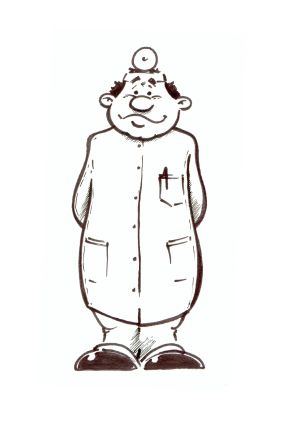Cognitive Dissonance
Psychology Used in Medical School Applications
Medical schools use cognitive dissonance in secondary applications.
Posted December 3, 2012
A few years ago, I wrote an article titled Other Trades’ Tricks. It examined how social psychology concepts are applicable to the clinical practice of medicine. Among other topics, I examined how cognitive dissonance holds clinical significance. Recently, I noticed how medical school admissions committees are using the theory of cognitive dissonance to their advantage in medical school applications.
Before I proceed, it’s best that I define cognitive dissonance. Here’s how I defined it in my article:
“Cognitive dissonance, as its name implies, is internal discomfort (‘dissonance’) that results from two conflicting ‘cognitions,’ or thoughts, attitudes or opinions. The original cognition, normally, is deep-seated. The second, conflicting cognition is newer and results from some behavior contrary to the original cognition. The person then adopts a newer cognition to explain the behavior. The conflicting beliefs and actions caused discomfort, which was reduced when the person adopted the newer belief. The whole process occurs in the subconscious.”
The United States health care system is poised for a crisis. In the coming years, there won’t be enough primary care physicians to serve the American population. Coupled with the fact that the Affordable Care Act plans to introduce 32 million uninsured people into the system, we can anticipate the ‘perfect storm.’

Local and state governments have done their best to prepare for this problem by opening up more medical schools and expanding class sizes. These efforts should have been followed by a concomitant increase in the number of slots at residency training programs. Unfortunatley, the federal government, which funds graduate medical education, refuses to expand the number of residency program training positions and pour more money into graduate medical education through programs such as Centers for Medicare and Medicaid Service. In fact, the federal government is considering cuts to graduate medical education
In a continuing effort to train more primary care physicians to serve the population, medical schools are screening for applicants specifically interested in primary care. On some medical school secondary applications, there are questions like “Why do you want to become a primary care physician?”
Even if an applicant is uninterested in primary care, this leading question forces the applicant to write down why they want to become a primary care physician. Applicants who may be interested in specialty care will be faced with cognitive dissonance when they write about why they are interested in primary care. In other words, the act of writing about primary care results in a cognition that conflicts with more deep-seated cognitions to pursue specialty care. Ostensibly, medical school admissions committee members hope that applicants will reconcile these disparate cognitions by changing their minds and pursuing primary care.
Of course, applicants may also reconcile such disparate cognitions by realizing that they must answer such questions in order to “get in.” And once they’re medical students, such applicants will be able to choose whichever field that they desire.
Follow me on Twitter


